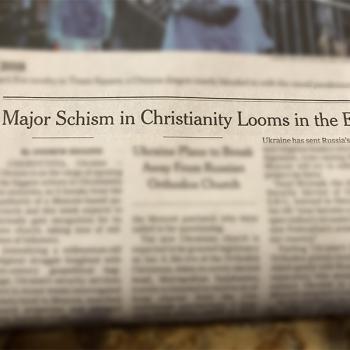And finally peace: it was indeed time for retirement, to relinquish the full-time pastoral portion of this call.
The Question
A dear friend and fellow clergywoman sat across the table from me and watched compassionately when I burst yet again into inconsolable tears.
She asked, “Who has been your pastor through this awful time?”
Now there’s a fascinating question for a pastor to hear.
And what has been so awful, after all?
This friend mentioned this blog. “Christy, how would people know your pain? Your writings sound coherent, and people are enjoying the retirement journal. Your other posts reflect expansive study and ability to connect things that many can’t see. You speak of your church and the power of the ministry there. How would anyone know?”
A bigger question came up: How do clergy even begin to disclose things?
A recent study from the Clergy Health Initiative suggests that about 11% of clergy are showing signs of severe depression, roughly double the population at large suffering in such a way. They were surprised the numbers were so high. I’m surprised the number is so low.
And I’m serving a church that is remarkably alive and full of grace.
Part One of the Difficult Year leading to retirement
My marriage had been severely troubled for some years. It became apparent to me about six months ago that a divorce was necessary.
I had so very much not wanted to do this, but on the first day of a needed vacation/study leave last spring, I received an email communication from my husband that stunned me with the position taken and the implications of words written.
Numbed, silent about the contents of the email, I spent some time with children and grandchildren. I then entered into a planned intensive reading/writing time with the intention of researching and planning out messages through the end of 2013 as well as finishing a book I had been working on for some time.
During that time, I consulted with several professionals, spent hours in anguished prayer, and finally recognized the wisdom of the words of an attorney, and also my friend, “Let me protect you and get the motion for divorce in a Denton court where you have friends and support.”
He phoned me the next morning, right after filing the petition. I wept unceasingly for three hours. Nearly total devastation.
Part Two of the Difficult Year
The decision to divorce had followed an extraordinarily difficult time just before Easter when I, working with others, realized we had to terminate the employment of the person who had been directing the childcare/pre-school program at the church.
I chose to take all the heat of this decision. I disclosed nothing of the reasoning and charges behind it to do all possible to preserve the reputation of this person who resides in our small community.
And heat I took. I received it silently, without defense. New leadership came on board and began to evaluate the challenge of rebuilding a program that had, until the last year, carried a strong and powerful reputation within the community.
Six months later, we are finally out from under state corrective action and seeing new life spring from the ashes.
I paid the heavy and multi-layered price for that decision.
And then the decision for divorce. Who indeed was my pastor?
Part Three of the Difficult Year
For me, certainly not my District Superintendent at the time. Indeed, as I was to find out late spring, evidence suggests that he was working in collusion with the spouse (and non-church member) of the former childcare director.
Apparently, the spouse had phoned the DS with a list of extremely serious accusations against me. Instead of being referred, properly, to our very effective SRPC, the former DS had that non-church member write up the charges. He then enlisted another member of our clergy connection to evaluate those charges.
I learned nothing of this ad-hoc committee on investigation, the nature of the charges or the verdict rendered until a notebook, nicely documented and tabbed, showed up in my office. The DS attached a note saying he had sent copies of this neatly tabbed binder to the Bishop and the new DS.
Clearly, trusting this DS with news of my impending divorce would not be a wise choice.
I did inform the SPRC Chair and asked him to take the news of the divorce to the committee so they might begin considering with holy discernment whether I could continue to serve effectively as pastor in our unique church and community situation.
“How ARE You Doing?”
As for me, I wept daily, saw an excellent therapist weekly, got up every morning, prayed, dressed, ate, and worked. I preached, taught, wrote, administered, celebrated the sacraments, served in my connectional responsibilities, saw a vision of the future of this church, began to let others know . . . and kept weeping in my private moments and on occasions when anyone might dare to say, “How are you doing?”
And wondered each day, “How is it possible to still be alive in the midst of emotional anguish so strong that I can barely take a breath?”
I then began to contemplate retirement.
As I’ve written before, I have long been aware of a dual call on my life: the call to the ministry of the ordained with The United Methodist Church AND the call to write. For many years, they have fitted together hand and glove. Each calling informed the other, and I loved the fluid and complementary movement from one part of the call to the other and back again.
Perhaps it was time to set one down in favor of the other.
Again, back to my knees. “Merciful God, what do You want?”
Day after day, “Thy will be done.”
Peace Descends
And finally peace: it was indeed time to retire, to relinquish the full-time pastoral portion of this call. Peace, yes peace.
And a peace full of both anticipation and anguish. I am not ready financially for this move. The divorce, finally settled, ended up costing me thousands upon thousands of dollars, further weakening a barely stable financial base.
When I contemplate leaving behind this church, this community of grace, of love, of service, of centering on the Gospel, my heart breaks. I could have requested a smaller, less challenging appointment, but each time I thought about it, I sensed that this was not to be my path.
In choosing retirement, peace enfolded me–that very peace that passes understanding. It is mine, and mine in abundance. It holds my fears and catches my tears.
Who Was My Pastor?
But now, I return to the original question here: Who was my pastor? Many have cared gently for me during this time. One dear saint, who rightly has identified herself as my “spiritual mother,” has surrounded me with her light.
She gave me a beautiful set of pearls. I would not normally accept such a gift, but she said, firmly, “God told me to give these to you.” So I wear them nearly daily.
Each morning, when I fasten the catch, I am aware that the act has become a sacrament, a means of grace for me. I know that she is holding me once more in her prayers.
Another close friend and neighbor cooked me healthy meals and offered empathy, healing conversation and friendship as well as nutrition.
Church members who knew something of the situation have been unfailingly supportive and gentle.
I was not alone, and do not want to suggest that I was. My sons and siblings encircled me with love and aid and hope. I need not be pitied here.
Our Clergy Covenant
But my clergy friend’s question about my pastor that moment opened thoughts about the nature of our clergy covenant just as it opened another run of tears down my face.
Clergy membership is in the Annual Conference, not the local church or charge. We as ordained clergy have made profound and binding promises to God and one another. We proceed and follow one another in our various appointments. We reaffirm our covenant with each other yearly.
But for the most part, we are very separate from one another. We have the occasions when we connect deeply, but there appears to be a profound, if unspoken, fear of real vulnerability with one other.
We never know who will use such vulnerability against us, when, in the competitive nature of the clergy career ladder, we will discover that one who knows too much now has the power of life and death–or at least appointment and location–over us.
We know painfully well that when one falls, a nice hole opens for a series of clergy advancements.
I have not fallen. I’ve made an intentional and thoughtful choice to take an early retirement. Others will benefit–and I am glad. But it still doesn’t solve the problem.
I love this church, this United Methodist Church, with all its flaws and wild fights and ridiculous, strangling bureaucracy, and irrelevant and unworkable committees. I love the connection. Mostly, I love the theology of grace that ultimately binds us to God and to one another.
I think we’re going to either implode or blow up and I still love it. God works through us–and despite us.
And we need a better way to care for the clergy who are out on the front lines.
Out here, we take shots from our congregations and our communities.
Others evaluate us as effective or non-effective primarily by metrics over which we have no control (i.e., how many show up for worship on Sundays and how wide their billfolds opened).
We go where we are told to go and live where we are told to live. Only a few have the long-term, high-pay, high-steeple more settled church appointments which permit them to purchase their houses.
We serve in churches that worked beautifully in the 50’s and 60’s but which have almost no overlap with current culture and schedules and needs for the transcendent.
The communities we seek to reach think denominations either dated or disputable.
Their youth, if they even consider church at all, go where the theology is shallow, the bells ring, the whistles blow, the sound blares and the videos dance—as do they.
But mostly they don’t go because they are just too busy and too exhausted. So are their parents as the expectations of fully-rich and fully-enriched childhoods become the real religion.
Many clergy are tired, discouraged, and beat up. But we stay because we honor our call, and we love God and our communities. We seek to be purveyors of grace and givers of holy wisdom.
Our structures, our training, and our financial tent pegs make it nearly impossible to have the kind of flexibility to minister in a world where anything more than one day old is clearly yesterday’s news and should be discarded in favor of today’s latest viral moment.
It’s an impossible task. Facing it in a way where we have each other’s backs would genuinely help.
But we are not set up that way. And I am not sure we ever have been. Church historians could address this far better than I, but my readings about the lives of those on the circuits from the earliest times of the Methodist movement suggest that they had incredibly difficult lives.
Not many lasted more than a few years, and most either left or were localized after that time.
John Wesley himself had a disaster of a marriage. His habits and his constant travel made it impossible to engage in any kind of marital normalcy.
Any ideas, anyone? I am sure there are many creative and useful ideas out there to help with this issue. What are yours?

















